The Ultimate Travel Guide For Beginners in 2025
There is that moment – the one not long before your bag is zipped up, your ticket scanned, or your heart starts pounding in the departure lounge – when it all sinks in. You’re not just going on a trip. You are entering a universe that does not operate on your time, in your way, or according to your rules. And that’s the beauty of it. No matter how many travel tips you read or plans you make, part of the magic lies in surrendering to the unknown.
Table of Contents
Which is why, in this guide, we’re skipping the stuff that everybody knows and focusing on the genius-level details that make every mile far more meaningful. From the best student travel hacks to wisdom, only the most well-travelled nomad will share the craft for cautious brains and wanderlust hearts.
So if you’re prepared to travel not just farther – but deeper – let’s go. But the world isn’t holding its breath. It’s already moving. And you? You’ve just arrived.
Travel Tips for First-Time Travelers
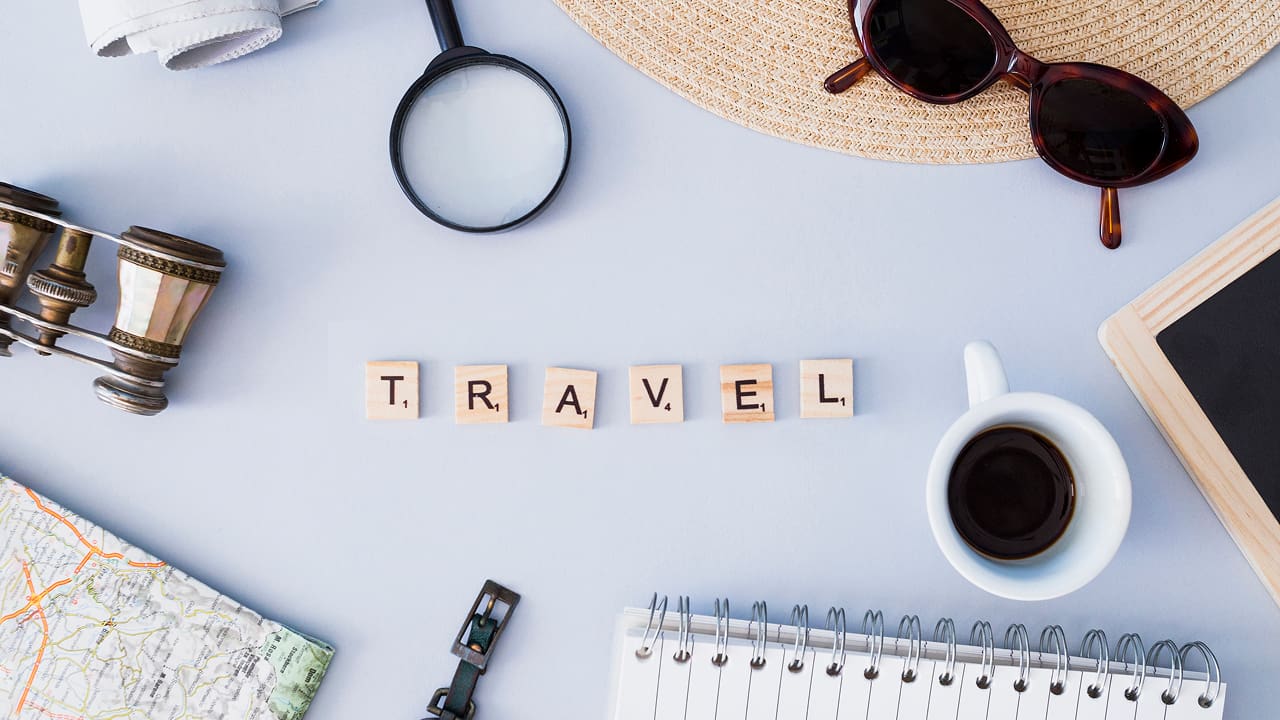
Arriving by foot on your first “real” trip – a solo weekend escape or a short domestic jaunt – is like stepping into a new world. It’s exciting but can also become overwhelming if you’re not ready for it. Attempts to answer the question of how one should decide what to bring are mentioned little in this section. It’s particularly helpful if you are staring at a suitcase and wondering where to start.
We’ve already covered how to pack, but here you’ll find the mindset and basic travel tips that will help you become a confident first-time traveler. The good news? You don’t have to know it all. You just need to start right.
Essential Do’s and Don’ts for Domestic and Short Trips
These travel guidelines are the building blocks of a smart, stress-free trip:
- Do travel light - but not too light. Will you need three outfits per day? No, but leaving your charger in town or a second pair of socks at home is rookie stuff.
- Don’t over-plan every hour. The best moments often come from the unexpected tracks.
- Do your research on your destination. Even knowing local customs, climate, and, yes, simply how to say hello can keep you from embarrassing yourself.
- Don’t depend solely on your telephone – signal can be lost, and batteries die. Have a printout of your accommodations address.
- Tell someone you trust about your itinerary. It’s a simple safety check.
- So don’t post your live location all over social media. Post after you have left a location – safety is key.
Health-Conscious Trip - Health Kits, Hygiene, and Flexible Booking
In a post-pandemic world, good hygiene is still important for you and everyone else you encounter. Travel health is crucial, so prepare a small health kit, such as masks (especially in dusty or crowded areas), hand sanitizer, antibacterial wipes, and a digital thermometer. (Add rehydration tablets and vitamins while you are at it.)
Book flexible – always. Opt for lodging or plane fare that can be easily canceled or date-changed. You will thank yourself if plans change.
Tip: Travel insurance with health coverage is a must when one is traveling, especially if it’s your first time. It’s your backup when things go south, be it physically or metaphorically.
Student Hacks – Trip on a Budget Without Missing Out
Students are often budget traveling – it doesn’t mean you can’t have any fun, though. Students are often eligible for discounts at museums, on buses, metro passes, and even at restaurants in many cities, just show your ID card. Budget travel tips for students:
- Opt for overnight buses or trains when you can – no need to pay for lodging, and you wake up to a new sight.
- Opt for hostels that offer free breakfast or walking tours, or have shared kitchens (yes, cooking pasta at midnight counts as a cultural experience).
Tip: Bring along smart snacks – granola bars, trail mix, and a reusable water bottle with a filter, for example. It saves money and prevents you from becoming a slug by exploring on foot.
Safety Before All – Digital Backups, Passport Photos & Local Awareness
It’s panic-inducing to lose your wallet or passport, but less so if you’ve prepared in advance. Before you leave. Some of the most vital travel guidelines for first-timers are about staying safe:
- Photograph your passport, visa, tickets, IDs, and anything on your insurance card. Emailing them to yourself and putting them in cloud storage.
- Take a few passport-sized printed photographs – for emergency documents or some visa-on-arrival counters.
- For exploring, just observe the rule of the “invisible traveler” – and remember to stay aware, and don’t flaunt valuables. Trust your gut. If something seems wrong, it probably is.
Pro Tip: Download offline maps and drop a pin of your accommodation. Newbies to this mistake don’t realize, and end up wandering around new streets for hours without being able to look at a map to find out where the hell they are.
Uncommon Travel Wisdom That You Haven’t Heard a Million Times
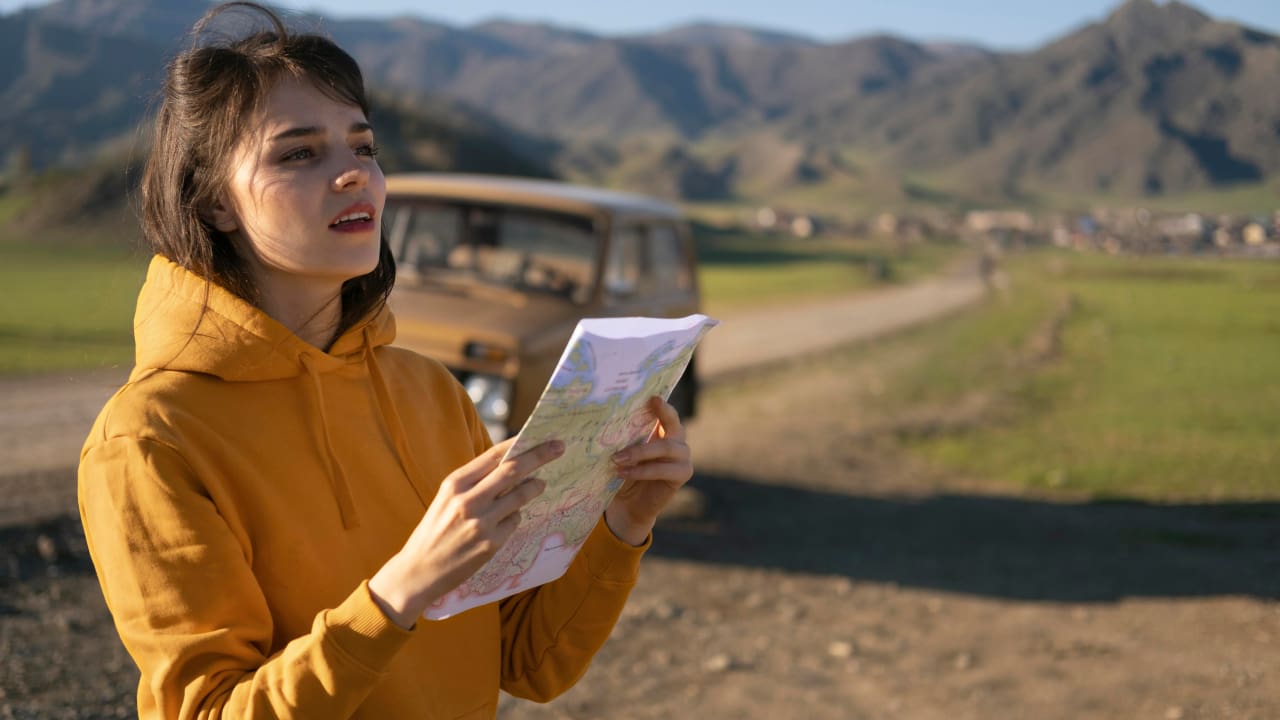
By now, you are likely scrolling through endless TikToks and Pinterest boards of “Top 10 Travel Tips.” And while a few of the best travel guides are useful, most are just cloaked in the same tired advice you see over and over: roll your clothes, take a neck pillow, download Google Maps. Yawn.
This is where the genuine travel wisdom – the kind that comes only from missing a train, eating sketchy street food, or losing luggage – comes in. If you’re ready to travel farther and smarter, not just cheaper and faster, read on. These are the game changers that no one tells you until after you have already made the mistakes.
Book Your First Two Nights Only – Keep it Spontaneous!
Yes, it’s hard not to go ahead and book your whole itinerary at once – it’s reliable, simple, and painless. But here’s the reality: locking down every detail can also limit the magic of the journey.
Booking only your first two nights gives you the breathing room to explore and pivot. What if you fall in love with a certain place and want to extend the trip? What happens if the hostel you picked out online looks dirty, noisy, or just not your vibe?
Leave space for discovery. If not, you could stumble on a local homestay that never hit the internet and end up loving it most of all.
Pro Tip: Search for booking apps that allow you to filter by “pay at property” or “free cancellation.” You have all the flexibility and none of the commitment panic.
Stay Clear of “Cheap Deal” Tricks – Value Always Trumps Cost
Cheap is not always good, especially when traveling. Which dirty dormitory did that $4 hostel bed you’ve been eyeing come from? And that too-good-to-be-true taxi ride? It may take a detour to a scammy shop. However, that all-in-one package could have you marooned inside a resort, far from the bustle of daily life.
Value equals comfort, location, and reliability. A $15 hostel two minutes from downtown is worth more than an $8 one located an hour away. A $50 day tour with a small group could provide a lot more insight and experience than a $20 cattle-herd version.
Tip: Read recent reviews – don’t just rely on the star rating. What travelers say is more important than the algorithm.
Shop for Essentials Overseas but Pack the Irreplaceables from Home
Running out of toothpaste? Easy fix. Forget your prescription meds or glasses at home? Nightmare. It’s the stuff you can’t easily replace: Your prescription medications, your favorite shampoo or toothpaste, or your running shoes. Everything else – razors, sunscreen, even clothes – can usually be purchased more cheaply (and in some cases better) at your destination.
This hint also leaves room in your luggage. Instead of bringing every item under the sun, leave space for the unexpected and experience what life is like for locals. The little bar of soap from the 7-Eleven in Thailand? It’ll keep on smelling of nostalgia.
Related Pick: Things to Consider Before Traveling
Pro Tip: Keep travel-sized essentials in your bag for the first 24 hours, just in case your luggage goes missing at the airport.
Expect Delays and Lost Items – Plan with Flexibility
If you make it everywhere without anything going wrong, well, you’re lucky. But trips rarely go perfectly. Flights get delayed. Buses break down. Favorite earrings vanish. It is not failure – and it’s all part of the story.
Anticipating that the wheels will come off—whether that means delays, cancellations, or whatever—moves you from a zone of frustration to one of flexibility. Bring a book or download a show for delays. Give yourself a little extra time between the connections.
Pro Tip: When booking flights or trains with tight layovers, ask yourself: What’s the worst that could happen? If the answer is “missed connection with no backup plan,” reschedule now, and not in the departure lounge.
Proper Shoes, Street Food, and Slow Trip for Deeper Experiences
Ditch the flimsy flip-flops and bring real walking shoes. Your feet are quite literally your most valuable tour asset, and blisters can derail an entire day.
Eat the street food – yes, even if your mom told you not to. Just be smart: pick stalls with lots of people, look for fast turnover, and use hand sanitizer.
And most importantly? Slow down. Don’t fit five cities into a week. Pick fewer places and get to know them. Walk the back alleys. Sit in local parks. Listen to languages you can’t understand. Stop to speak with a fruit vendor instead of walking right by.
Slow trip isn’t lazy – it’s luxurious, adventurous, and more complete. It transforms sightseeing into a connection.
Tip: If, in the middle of a trip, you ever feel like it’s getting too much, stop being a “tourist” for a day. Sleep in, journal, get lost. That, just possibly, is your best memory.
Advice for Nervous or New Travelers
If you’re feeling jittery, think small. Opt for places that have nice infrastructure and a tourist-friendly feel. Cities with good signage, straightforward public transport, and helpful locals can help baby boomers make the transition to life on the road.
Know your airport before you get there. Check out maps online for the location of the check-in desks, security queues, and boarding gates. Arrive extra early – nerves don’t like a rush.
Put together a basic itinerary of stops you feel you “must visit,” but give yourself lots of wiggle room. Don’t be surprised if plans turn upside down; learns to accept spontaneity. Being flexible keeps things fun rather than stressful.
What to Expect at Airports, Hotels, and Customs
Airports can seem chaotic, with their swarms of people, loudspeaker announcements, and security checks. Pack your documents and electronics in accessible locations. Comply with directions nicely – security guards love working with compliance.
At customs, stay calm and friendly. Just be truthful and brief with your answers. Keep your passport, visa (if required), and any documents you may need in your pocket. Of course, recall that the officers are on hand to ensure everyone’s safety, not to suppress.
Before you go, confirm your hotel’s policies. Most places make you show an ID or a credit card at check-in. Have your reservation confirmation handy – either in print or on your phone.
Social Tips – Solo vs. Group Social Behavior Abroad
Solo travelers can feel apprehensive about being lonely or unsafe. Going solo is great for you, but here are some solo travel tips to enhance your adventure. Start chatting with locals or fellow travelers in cafes, hostels, or on tours. Get involved in group activities to find people with similar interests.
If you’re traveling with other people – family members, friends – be mindful of folks’ pace and interests. Alternate group plans with solo time to recharge. Take the pressure off – it’s your vacation too!
Adapting to New Cultures and Routines
Culture shock is a thing – the sights, smells, and sounds (not to mention the pace of life) can seem overwhelming. Allow yourself to take it all in and get used to it. Eat local food, go to cultural events, or take a language class. These will help you connect and feel less like a tourist.
Don’t beat yourself up if things go wrong. No traveler is immune to the awkward moment. Laugh at them and move on!
Packing Smart, Light, and Right
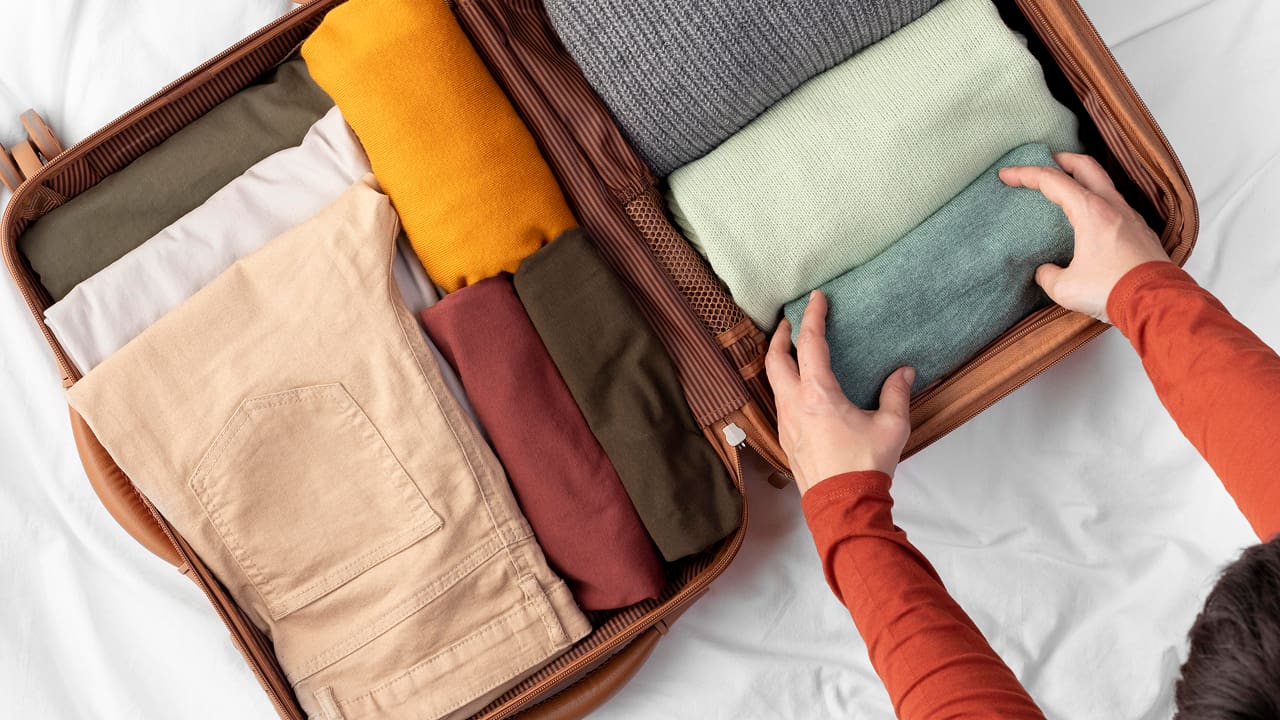
Packing is an art form. It’s not just another pre-trip task, but an artful technique to be mastered. When you have it, traveling is awesome; when you do not, it stinks. We’ve already covered not packing one pair of pants that can see you through a whole weekend.
But how do you avoid falling into the excruciating “what-if” hole that leads to a maddeningly over-stuffed suitcase full of stuff you’ll never wear? But let’s take a closer look at what it means to pack smart, pack light, and pack right.
How to Not Overpack (the ‘What-If’ Trap)
It starts with a mindset. You’re not gathering for the end of the world; you’re going on an adventure. The truth? The vast majority of “what if” scenarios do not occur. What if it rains every day? What if you get invited to a nice dinner somewhere? But what if every day you need six outfits?
Stop. Instead, think probability, not possibility. Remember that you can re-wear, wash, or purchase what you need once you’re on the road. Always keep in mind, if you are packing for comfort, utility, and range of use, you can never go wrong.
Pro Tip: Adhere to a rule of three — three tops, three bottoms, three sets of socks/underwear. Add one outerwear piece. That’s easily enough to mix and match for a week.
Luggage Types – Backpacks vs. Carry-Ons vs. Checked Bags
What you pick up to put inside your bag is as important as what you choose to put it in. Every type of luggage has its moment:
- Hiking: Ideal for hostel hoppers, budget travelers, and trekkers. A 40- 50L pack encourages minimalism and doesn’t leave you with your hands full of stuff. It’s essential if you’re winding through stair-heavy train stations and bumpy village roads.
- Carry-ons: They are ideal for city breaks, brief getaways, and travelers who want to get through the airport quickly. 1 carry-on + a purse is their usual policy of most airlines. This has saved you from paying baggage fees and the fear of lost luggage nightmares.
- Checked Bags: It may be necessary if you’re packing specialized gear, taking a long trip, or like to have options about your wardrobe (fashion bloggers, we’re looking at you). But there is a catch: checked bags usually involve waiting, worrying, and added cost.
Tip: Always give your packed bag a 10-minute walk at home. If you despise lugging it around now, you’ll hate it when you are trying to pull it up in the streets or airport escalators.
Minimalism on the Move – Multi-Use Clothes and Solid Toiletries
Just because you are a minimalist packer doesn’t mean you’ll be stuck in boring clothes or abandoning hygiene. It´s about making better decisions, which is also an important part of the tips for travelers:
- Multi-use clothes: As in, a dress that can serve as both a beach cover-up and a dinner outfit. An easy, lightweight jacket that’s suitable for the rain and also acts as a windbreaker. Matching pieces all around – that’s travel fashion done!
- Solid toiletries: Solid shampoo and conditioner bars and toothpaste tablets create no bulk and bypass the liquid rule. They’re eco-friendly and leak-proof, too - win-win-win.
- Minimum-packing converts swear by it: This is for the traveler who thinks he has mastered that particular art. Fewer things = more optionality. More freedom. Less stress.
Tour Gadgets
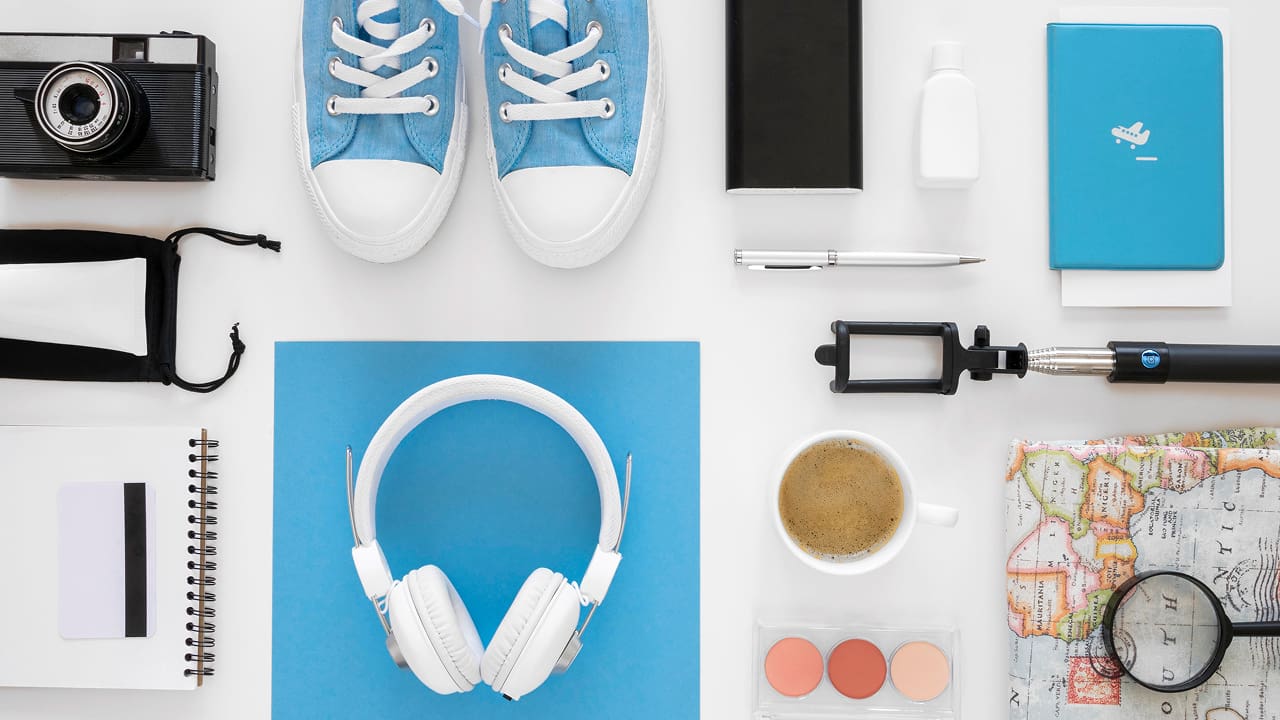
In an era of technology that fits in your pocket, the allure of bringing every gadget you own is strong. But smart travel tips say only pack what you’ll use — and preferably, what has multiple functions.
Which Gadgets Matter in Your Life on the Go?
Never mind the tech overload – you don’t have to pack the drone and the GoPro and the DSLR and the VR headset. You want gear that is efficient, utilitarian, and compact.
The golden rule: if it doesn’t have at least two uses or doesn’t radically simplify your trip, leave it at home.
You and your smartphone are attached at the hip. It’s your map, translator, currency converter, camera, flashlight, weather reporter, and emergency contact system – all in one. Combine that with a portable power bank (it needs to be at least 10,000 mAh), and you’ve unleashed the essence of digital trip meditation. And who couldn’t use a universal adapter with multiple USB ports? Non-negotiable.
Apps & Offline Tools
Offline-friendly apps can make your crappy remote work situation or your terrible signal much less stressful. Download offline maps in Google Maps or HERE WeGo, and pocket a copy of your itinerary in apps such as TripIt or Notion.
Language barriers? No problem. Google Translate’s offline function – with camera scan translation to boot - will assist you in deciphering menus, signs, and dialogue. Add in XE Currency, for real-time currency conversion, and Duolingo, for learning the essentials of the local language, and you’re more prepared than many.
A Digital Packing Checklist
To make packing easy, here are some mini digital travel tips for the essentials:
- Smartphone + charger + power bank
- Universal travel adapter
- Bluetooth earphones
- Small flashlight or headlamp
- E-reader or tablet (if you read or work)
- Extra USB cable (always!)
- SIM card ejector tool and local SIM (only for international travel)
- Waterproof phone case or dry bag
Optional but useful:
- Light laptop or tablet with keyboard only if you’re working remotely
- Action cam or trip camera (if photography is a major part of your trip)
- Travel journal app (e.g., Day One or Journey)
Packing for Memories
Even if you’re traveling light, don’t forget to document your adventures. A good camera phone, or one of the more compact mirrorless cameras, can help you record memories without the bulk. If a diary is more your style, try a petite notebook or a journaling app.
Taking five minutes every night to reflect can enrich your traveling experience and give you something to remember beyond snapshots. Technology, when used wisely, can make your travels better, smoother, safer, and infinitely more memorable.
All About Safety and Insurance
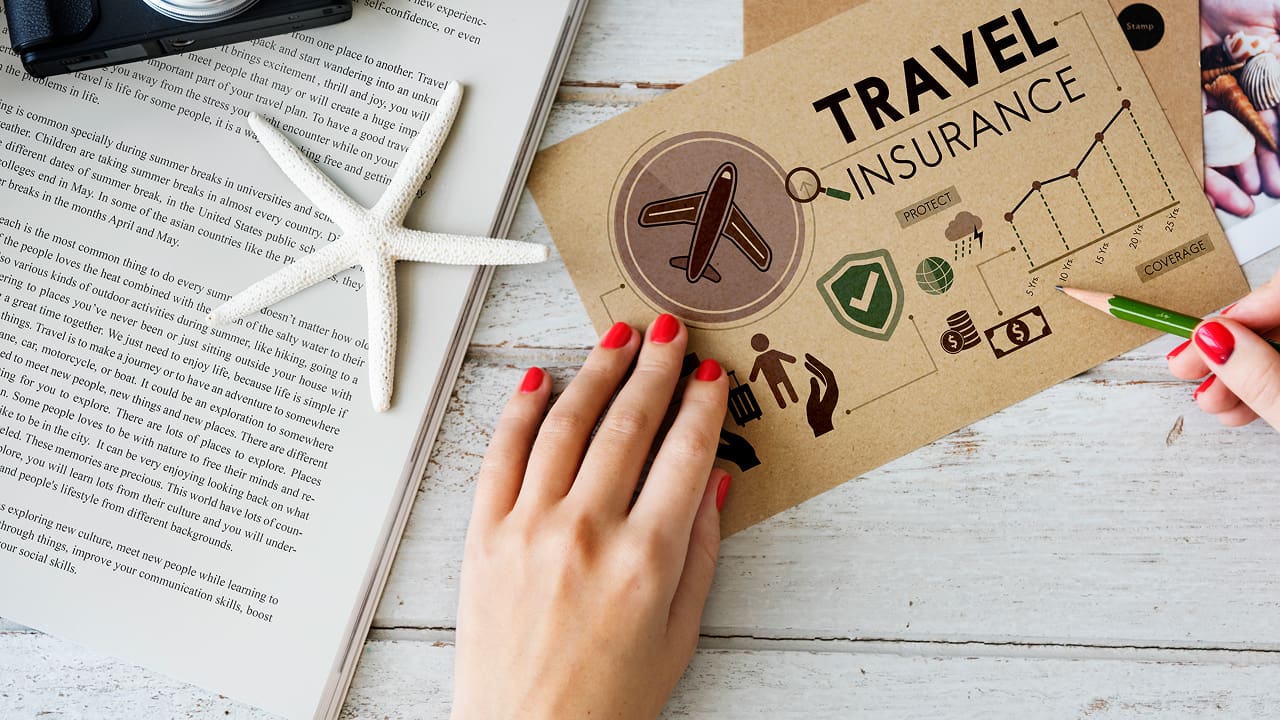
Spontaneity is what powers our explorations, a peace of mind knowing that travel safety tips are at the heart of every trip. Travel is not just about excitement; it is about smart planning and tips. From safeguarding your papers to not getting sick in strange climates, this section makes sure you are not caught on the back foot.
Why Travel Insurance Isn’t Optional?
You could be trekking in the Himalayas and twist your ankle with no city hospital nearby. Or contracting food poisoning in a tropical paradise, and then discovering your home insurance policy won’t cover treatments on foreign soil. This is where travel insurance swoops in to be your unsung hero.
Comprehensive insurance covers:
- Trip delays and cancellations
- Emergency medical costs
- Lost or stolen luggage
- Disaster or political situation evacuations
It’s a minor cost for the benefit of a large safety net. Be sure to verify whether your destination has any insurance requirements (some places require general travel insurance upon entry, even if not for visa purposes).
Passport, Visa, and Document Safety
Your passport is your most valuable asset. Make three copies: one to take with you in your luggage, one to leave at home with a friend or relative, and a digital version stored in the cloud or via email.
Don’t wait till the airport to check visa requirements. Some countries offer visa-free entry, while others require prior approval, and still others require proof of accommodation and return travel.
Tip: Use a slim, RFID-blocking wallet to organize your passport, ID, boarding passes, and documents in order. It’s a time-saver and an electronic pickpocketing protector.
Money – Cash vs Cards & Local ATMs
Cash is king in the countryside, markets, or offbeat towns, while cards rule in cities. Bring an even assortment, rather than a lot of one thing, and don’t forget some local currency for expenses such as taxis, water, or tips.
Instead of changing money at airports (where they often have terrible rates), withdraw straight from an ATM at your destination. Opt for ATMs in banks or malls for added security. Let your bank know before you go, so your card won’t be blocked for “suspicious” foreign activity.
Depending on your budget, you should also look at a multicurrency card or a second debit card in case it gets stolen or stops working. Oh, and keep cash in different places – not all eggs in one money belt.
Health Products – Medicine, Heating Pads & Sanitation Products
When you’re riding adrenaline highs, health can be easy to overlook. But altitude sickness, stomach bugs, or a sudden sore back can come on quickly.
Always pack:
- Prescription meds (and copies of prescriptions)
- A simple first-aid kit: painkillers, band-aids, antiseptic wipes, anti-diuretics
- A travel-friendly heating pad (especially useful for soothing muscles or menstrual cramps on longer treks)
- Hand sanitizer and disinfectant spray
- Washable face mask (for dusty treks or smog-choked cities)
- If you wear glasses or contacts, have a backup pair in case.
Tip: Do not pack all of your medications and health-related items in a checked suitcase, but carry them with you in your carry-on. Delayed luggage shouldn’t delay your rebound.
Traveling on a Budget Without Compromising Fun
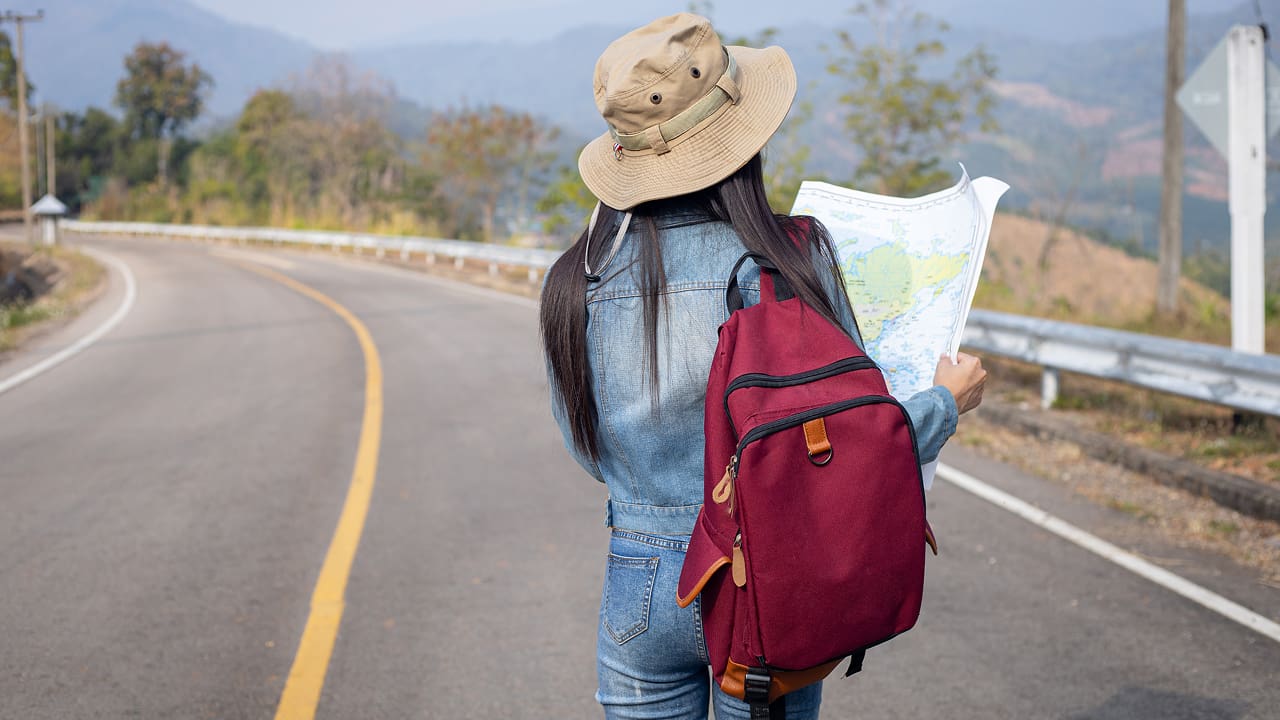
Who says adventure has to be expensive? Some of the most memorable tour moments are cheap local meals, cozy budget stays, and spontaneous bus rides with strangers. If you want some more travel tips, this is your golden guide.
How to Book Cheap But Reliable Options?
Start with flights. Search flexible dates on Google Flights or Skyscanner. It is typically less expensive to fly mid-week (Tuesday or Wednesday) than on weekend departures. Think about flying to other airports close to your destination for cheaper rates.
When it comes to accommodations, services such as Hostelworld and Booking.com have trustworthy budget options. Search for guest reviews, in particular, on cleanliness and location. If you’re in the mood to socialize, hostels can be gold mines of local tips and spontaneous plans.
If you’re really into traveling for as little as possible, sites like Couchsurfing or Workaway will let you exchange skills for a place to sleep. It’s a good way to meet locals and save money.
When to Spend, and When to Save
Think strategically. Spend on one-of-a-kind experiences – like a sunrise balloon ride in Cappadocia or scuba diving in the Maldives. And save on things that don’t form your memories, like a five-star hotel or a fancy airport transfer.
Save on:
- Transportation: Take buses, share rides, or walk whenever possible.
- Accommodations: Choose from dorms, homestays, and budget hotels.
- Dining: Eat as the locals do: At food stalls, mom-and-pop shops, street carts.
Spend on:
- Experiences you can’t have again
- Fundamentals of safety, such as insurance, good quality gear
- Local souvenirs made by artisans (not factory-made touristy stuff)
Backpacking vs. Luxury Trip Considerations
Backpacking is freedom in motion. It educates you on how to live with less and enjoy more. You remain agile, adaptable, and in touch with the actual culture.
Luxury travel, in contrast, offers comfort and convenience that are curated. You can opt for this if you’re doing the trip with elderly family or want a break between some rough experiences.
You Might Like to Read: Why is Traveling Important in Life for Young People?
Either approach works, but the sweet spot may be to mix them. Maybe go ahead and splurge one night to take a hot bath after a week in hostels, or to stay in a ryokan when you’re in Japan after you’re done hiking Fuji. That combination of best travel guides makes it more thrilling as well as sustainable.
Eating Well on the Go – Street Food and Local Cafes
Never mind the overpriced tourist menus. Street food is frequently the soul of a place’s culinary identity. From pad Thai in Bangkok to tacos in Mexico City, some of the most satisfying meals are wrapped in foil and served on a paper plate.
Still, safety counts. Opt for stalls with lineups, consistent flow of customers, and apparent cleanliness. Observe where the locals eat – it’s the surest sign of quality. Country cafes, small bakeries, and mom-and-pop eateries offer inexpensive and real food.
Bonus tip: You can save money on groceries and also discover regional snacks or some quirky local trend.
Mistakes to Avoid While Packing & Travelling
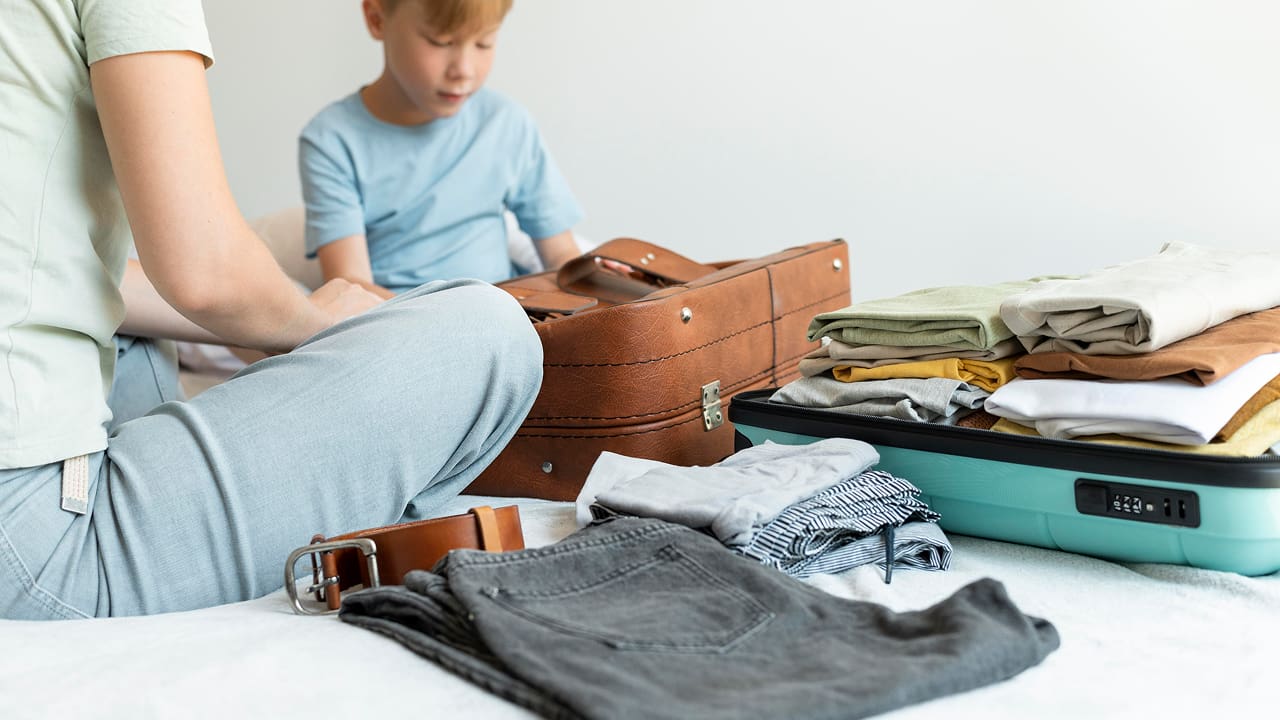
Even the most experienced travelers have their “oops” moments – forgotten passports, overstuffed bags, or assumptions that led to awkward customs run-ins. But with some forethought and savvy preparations, you can avoid the frequent trip blunders by applying travel tips.
Common Traveler Regrets – And How to Avoid Them
Biggest bummer that travelers have in common? Overpacking. It’s easy to prepare for every “what if,” but not worth it to drag heavy bags through unfamiliar cities or up hostel stairways. Stick to multipurpose pieces and remember: Laundromats exist nearly everywhere.
Another frequent regret is not researching enough. A lack of understanding of visa requirements, changes in the weather, and local scams can throw your trip off course in a hurry. Smart Googling for just an hour can help you prepare for surprises, not be wrecked by them.
And, finally, many wish they had bought travel insurance, which we talked about earlier. Flights are delayed, bags are lost, and we sometimes get sick. Insurance buys peace of mind.
Why You Should Always Check Destination Customs?
Not knowing is certainly not bliss when it comes to cultural etiquette. Whether they involve taking off your shoes before entering someone’s home in Japan or covering your shoulders at temples in Thailand. Paying attention to local customs isn’t simply polite – it can also prevent you from accidentally offending someone.
As always, ensure that you research local customs, dress codes, and taboos before you depart. Learn a few simple words in the local language – a “hello” or “thank you” can go a long way in making friends.
Also, don’t assume what works for you applies to everyone. Tipping, queueing, and even signs like a thumbs-up can mean different things from one culture to another. What’s buddy-buddy back home can be seen as rude elsewhere.
Bonus Tip: The Psychology of Travel – Why You Must Go NOW!
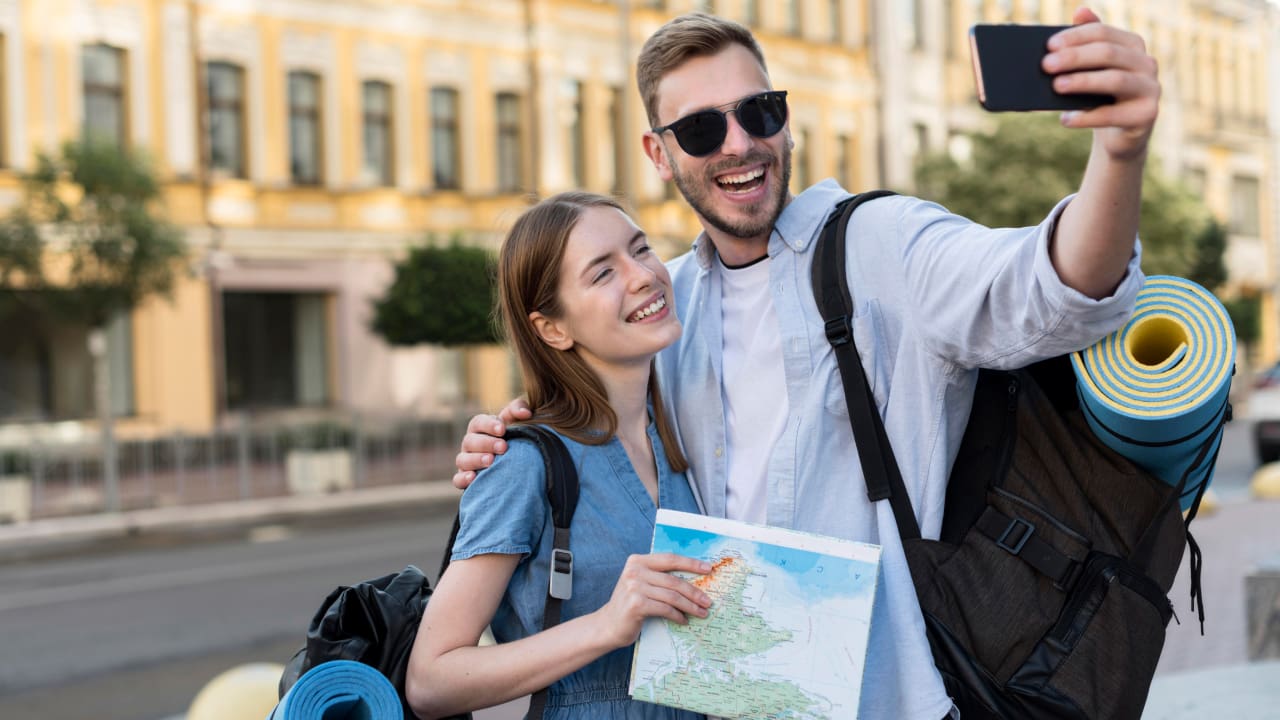
Travel is not just about crossing off places on a list or capturing Instagrammable scenes – it is a deep experience. Many people read travel tips endlessly but hesitate to take the leap. The most important tip? Just go. But so many do not, trapped by unseen barriers that hold them back. Here’s why the journey toward clearing those mental blocks and following your dreams of tour is one of the best decisions you can make.
How Fear Holds People Back From Exploring
One of the natural reactions to unknown territory is fear. It raises doubts: “What if things don’t go well?” or “Am I safe?” While these warnings contain some truth, they tend to multiply just the same, preventing us from going on incredible adventures.
Accept that your fear is an indication that you’re growing. Rather than trembling with fear, turn it into energy to think carefully and plan well. All travelers have uncertainty – the question is who does not let it prevent them from doing something.
Breaking Excuses – Family, Pets, Employment
“I can’t just leave my children. “Who’s going to take my pets?” “I have to work and won’t be able to take time off.” These are pretty common excuses, but actually, there are solutions.
Related Pick: Top 4 Most Important Factors to Consider When Planning a Vacation
Ask your family or friends who’d love to step in temporarily. Many employers today offer sabbaticals or unpaid leaves of absence for personal growth. Start small: weekend trips or daylong excursions can be squeezed into even the tightest schedule.
Trip does not have to mean flying from responsibilities. It is to enhance your life so that you return refreshed and more present.
Reprioritize – Travel Over Material Purchases
It can wait; the new car, the latest phone, the designer handbag. Experiences are memorable and last longer than things; they allow the memories to take hold and stories to be written.
Imagine looking back years from now, recalling a sunset over the mountain, a shared laugh with people, or the thrill of trying something new. It’s these moments that create your story. Consider an outing as an investment in yourself. The world is vast, so do not be disappointed if a few are not turning out as you had hoped.
Psychological Advantages of Stepping Out of Your Zone
A trip takes you out of your habit, among strangers, in strange locations. Travel disrupts monotony and activates your brain, which can help inspire creativity, decrease stress, and lead to more happiness.
New experience makes us more empathetic and open-minded. When you meet and experience other cultures, it broadens the mind and softens judgment. Travel, even just for a day or two, is a way to recharge your mental batteries, to fight off anxiety and depression. It’s wellness in disguise.
Conclusion – The Ball is in Your Court
Now that you’ve got a mother lode of travel smarts – from packing like a pro to overcoming fears and trying new things – the next steps are yours. The world is your blank slate, the story yet to be told by you. The best travel tips are the ones you put into action. So take that first step, and start building your own story.
So, what’s your process when it comes to packing? Do you know a secret hack that saves space or a trip habit that helps you stay sane on the road? Leave us a comment with your advice, your most hilarious tour mishap, or the moment abroad that transformed your life. Your story may inspire someone else to take that leap.
So don’t hold out for the “perfect” time or the “perfect” set of circumstances. There is no better time to travel than now. Pack your bags, take that first step, and watch the world change. The ball is in your court. Where will you go next?
Read More: Women’s Solo Travel

Great article!
Thanks Ryan..